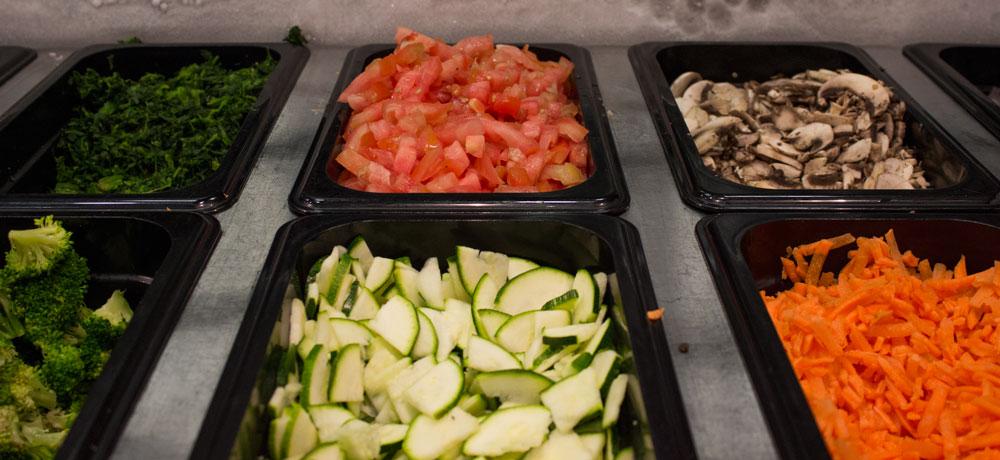For the second consecutive year, Appalachian State University will be participating in Local Appetite, a partnership with local farms and community organizations to bring in a record amount of fresh produce and meat to the university.
“Local Appetite is our way to help our customers focus on the importance of local foods,” said Art Kessler, director of Food Services. “The three-month promotion allows Appalachian Food Services to bring local produce and meat to campus.”
The inaugural year for Local Appetite was 2013, when, according to www.foodservices.appstate.edu, Appalachian spent close to $8,000 to support the local economy.
Some of the fresh food that will be brought in locally includes collard greens, green and red peppers, kale, potatoes, ground beef, bratwurst and several types of tomatoes, according to the website.
“What they have grown blends well with the products that we use in large amounts, or what we feel would be of interest to our customers,” Kessler said. “Most of the items are seasonal that our customers have purchased in the past when available.”
All of the farms are located in North Carolina, with the exception of one in Johnson City, Tennessee and one in Elk Creek, Virginia, which are about 56 and 67 miles from Boone, respectively.
“Appalachian Food Services feels it is important to support the local economy whenever possible,” Kessler said. “The best way to do that is to partner and support local farmers by purchasing their food items whenever possible.”
Kessler said Food Services intends to participate in Local Appetite even more than last year and continue to purchase more food every year.
“Purchasing a greater amount every year is our commitment to our local economy and the farmers that reside here,” he said.
Sanford Fishel, an owner of Fishel Organic Farms, one of the farms used in this initiative, said it is good for his business to partner with Appalachian.
“It helps us as farmers know where our produce is going before we plant, so we can plan accordingly,” Fishel said. “It keeps state money in the area instead of spending miles away.”
Fishel also said local, fresh food has many more benefits.
“Food that is locally grown is often picked the same day they get it, whereas other foods brought in may come from thousands of miles away and could have been picked many days before,” he said. “Fresher food is always better tasting and retains more good quality.”
Kessler said there are chalk boards in each of Appalachian Dining Services’ locations to let students know what foods are being served for the day that are part of the Local Appetite program and that there will be a Local Appetite information table placed outside of Rivers Street Cafe at various times.
He also said sometime during the initiative, which runs through November, farmers that raised the products will be on campus to meet students.
“Appalachian Food Services appreciates the support of the local farmers and wants to help in providing them financial support of the produce they have for sale,” Kessler said.
Story: Nicole Caporaso, News Reporter

